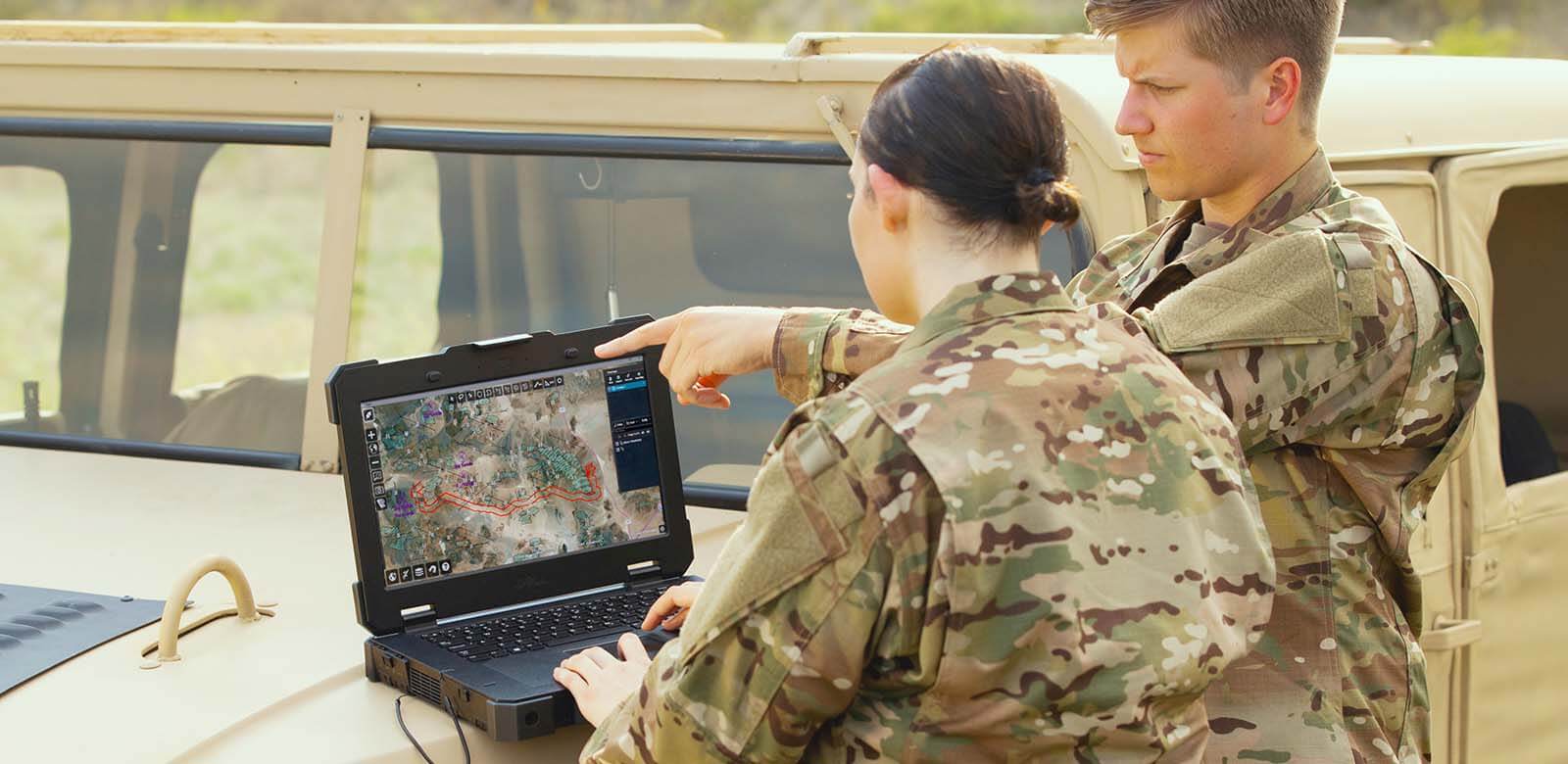In today’s modern battlespace, intelligence is the driver of operations. The need for sharing accurate intelligence data is critical to national security. U.S. military forces deployed throughout the world, operating in joint environments, require real-time access to actionable intelligence and information. The Department of Defense’s response to this need is a global network in which both military and government agencies have access to time-sensitive intelligence, surveillance and reconnaissance (ISR) data.
Collins Aerospace's solutions supporting the Distributed Common Ground System (DCGS) make this vision a reality.
DCGS is designed to meet the intelligence, surveillance and reconnaissance needs of joint and combined task force commanders. This is accomplished through a scalable, modular, open architecture that enables interoperability for the collection, processing, exploitation, dissemination and archiving of all forms of intelligence. DCGS integrates new and emerging capabilities into an open architecture that is network agnostic and will enable seamless data management from tasking to collection to near real-time dissemination to the warfighter.
Collins has decades of experience developing and integrating DCGS across military services, leading a diverse team of partners so that U.S. and coalition warfighters can change the course of events in hours, minutes or even seconds.
Key capabilities of the this system:
- Platform independent, open standards based architecture enabling the easy integration and use of commercial applications
- Information system interoperability
- Networked system providing a global command and control enterprise
- Robust security and attributable safeguards
- Software applications providing real-time control of ISR assets
- Software Development Kit enabling quick integration of third-party applications and services
DCGS-Lite
The DCGS-Lite program was developed by Collins with great emphasis on getting intelligence and information to and from the most remote edges of the battlefield. Mobile technologies were integrated to allow special operations teams to exploit intelligence from their far-off locations and provide near real-time reporting. Collins is able to provide the most current situational awareness data even in bandwidth-challenged environments. DCGS-Lite is able to receive alerts on enemy activity and distribute that information via tactical communications to hand-held devices on the forward edge of the battlespace. The data is also made available to the entire enterprise ensuring situational awareness at any echelon.
The heart of the system is the web-based DCGS Integration Backbone (DIB), which was implemented by Department of Defense as the data infrastructure standard. The DIB enables the discovery of data available within the DCGS enterprise, permitting users to pull relevant data forward based on their specific needs. This system is leading the way toward providing seamless interoperability among all military services, the intelligence community and our coalition partners.
DCGS-Lite not only features a robust, scalable data repository, but also hosts a geographical visualization tool known as Vega. Vega has the ability to display customized visualizations using data derived from multiple sources. Vega is an agnostic-mapping application that displays all the current formats to include imagery as a layer, eliminating the need for stove-piped visualization applications.
DCGS-Lite is currently operationally deployed in several locations around the globe.
The way ahead
Trailblazer
Trailblazer is Collins Aerospace’s scalable, open, modular, standards-based architectural baseline and framework that is hardware and network agnostic. These features enable processing, exploitation and dissemination (PED) and near-real time situational awareness across the enterprise. Node-to-node synchronization provides a single operational view across all echelons. The open architecture enables operations-intelligence convergence and paves the way for the Army’s Command Post Computing Environment (CP CE). The layered data integration approach separates applications to support incremental migration of legacy systems. Additionally, the visualization framework and user interfaces provide a consistent user experience tailored to user needs. Trailblazer merges enemy situational awareness with operational data providing a near-real time Common Operational Picture (COP) for the Commander.
Collins is developing the next generation of advanced analytics that are applied to the big data challenge. Analysts will receive computer assistance to merge data from multiple sources, automating the ability to synchronize and store diverse forms. Semi-automated correlation and fusion at the petabyte scale creates relationships and context that aids in intelligence searches. Names and objects found in diverse data sets are automatically associated into a single portfolio to eliminate the need for multiple searches. The ability to normalize data among repositories will ensure that no matter where a user taps into the data, the same data will return.
"This document does not contain technology or technical data controlled under either the U.S. International Traffic in Arms Regulations or the U.S. Export Administration Regulations."

